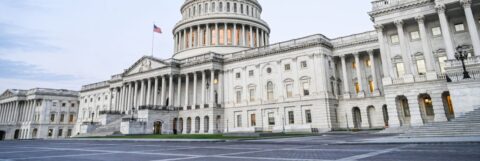The Detroit Regional Chamber is actively monitoring and collecting information on the shutdown’s damaging effects on the private sector and the broader economy. A stark example of this harm is the closure of the Small Business Administration’s loan programs, which are responsible for supporting approximately $860 million in loans to 1,600 small businesses every week. Halting this critical source of capital prevents businesses from expanding, hiring, and investing in the economy.
This shutdown also introduces a unique and damaging element of uncertainty. The administration has indicated it might use the shutdown to implement permanent reductions in force (RIFs), rather than temporary furloughs, for certain federal employees. This action could permanently alter federal programs that businesses rely on and is likely to face legal challenges, further extending instability.
The health care debate adds another layer of economic risk. With the Nov. 1 open enrollment date for ACA plans fast approaching, state insurance officials have warned that expected premium hikes are already being factored into insurance rates. This uncertainty not only impacts millions of families but also creates instability in the health care market, a vital sector of the economy.


